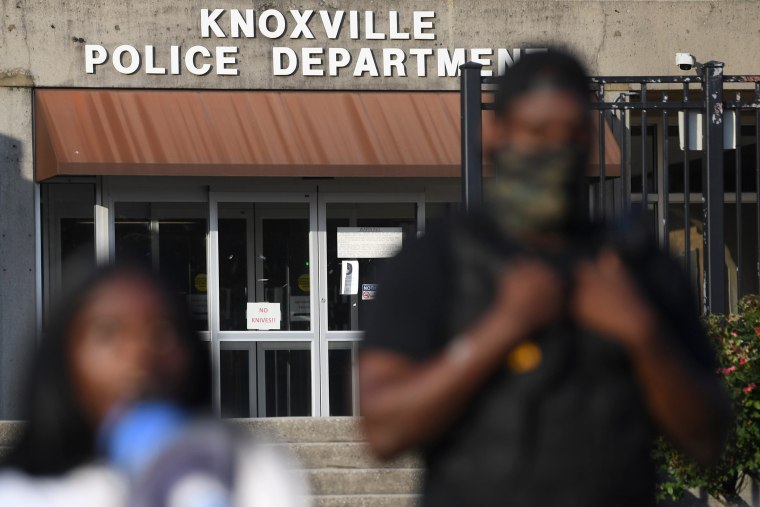Almost all the 15 Black officers at the police department in Knoxville, Tennessee, have felt discriminated against, according to an external review of the department. And none of them thinks the promotional process is fair, either.
The recently released review was conducted by 21CP Solutions, a consulting firm that specializes in improving policing. It was commissioned by Knoxville Police Department’s new chief, Paul Noel, who took over the role in June.
The findings come on the heels of years of allegations, scrupulously covered by the Knoxville News Sentinel, of racist behavior in the department, which serves a town of more than 180,000 people in eastern Tennessee. Last year, the paper reported that department leadership had attempted to conceal an officer’s racist comments and deter a Black officer from making a complaint about the incident. The controversy was indicative of a larger problem of racism at the department, multiple officers told Knox News at the time.
The new climate assessment relies on focus groups and an anonymous survey, in which almost all of the department’s roughly 360 sworn officers and most of its about 100 nonsworn personnel responded. The survey was open for two weeks at the beginning of August.
The results offer a rare, bare-bones look at the department’s internal culture and paint a stark picture of ongoing racial divides.
“If you are a Black officer, you have to work five times harder, and officers will always second-guess you,” one anonymous officer says in the report.
Another says, “When applying for posted positions and training, if more than one Black officer applied for a job that has multiple open slots, only one Black officer would get selected, and the other one would be told to wait until the next posting.”
Only about a third of the department’s 15 Black sworn officers said they felt they have a voice within the organization or that their supervisors are receptive to their concerns or feedback, the report shows. Twelve said they felt the organization discriminated against them because of their race. Black officers were also the least likely to say they felt there was a clear process for de-escalating problems internally.
Despite the lack of Black officers and women in leadership positions at the department — with only nine female officers and one Black officer in the rank of sergeant or higher — the report shows that white male officers believed that minority officers receive preferential treatment in hiring, promotional and assignment decisions.
In an interview with NBC News, Noel said he contracted with 21CP Solutions to conduct the assessment before he was even sworn in as chief because he wanted to hear directly from employees in an honest way. The takeaways from the report, he said, are “pretty clear.”
“These are all things that people in the community and the police department anecdotally knew,” he said. “But this is the first time we had a jumping off point to actually create change.”
The report recommends that the department make a greater effort to ensure that every stage of the hiring process reflects the diversity of incoming recruits, especially among background investigators. It also suggests developing mentorship programs for underrepresented groups.
Federal data released in 2020 suggested most police departments across the U.S. are notably more white than their surrounding communities. In recent years, amid many high-profile deaths of Black Americans at the hands of police, a significant number of Black officers have left some of the country’s largest departments.
Noel called the review of his department a “snapshot in time,” but that he’s hoping for a more full fledged assessment some time in the future of what he called a long-term fix.
“We did not get into this mess overnight, and we’re not getting out of it overnight,” he said.
